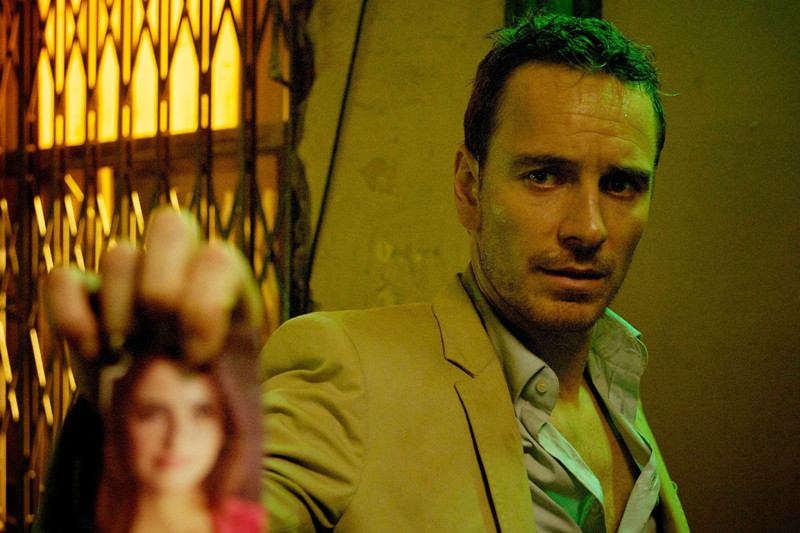
“The Counselor” is a 2013 film directed by acclaimed director Ridley Scott. The script is written by Cormac McCarthy, the author of novels “Blood Meridian”, “The Road” and “No Country for Old Men”, among others. The latter two were successfully transposed into films. McCarthy’s singular style and unique voice are vividly present in this film as well.
The stellar cast includes Michael Fassbender, Brad Pitt, Javier Bardem, Cameron Diaz, and Penelope Cruz. One may ask oneself what could possibly have gone wrong, bearing in mind the actors, the director, and the scriptwriter, whose talent was put to use to make this film. The audience’s reception, as well as the critics’ reviews, in general, did not seem to appreciate the film. One paper even speculated whether it was “the worst movie ever made.”
The film is very complex, with various philosophical undercurrents and a wide scope of ideas presented; the civilization’s decadence and greed as well as moral decisions that the characters have to make, with dire consequences. It is full of “excesses” in various ways; sexual, and those regarding extreme violence as well. All of this needs to be put into context to be understood and fully appreciated. Otherwise, what one sees is just obscenity and mindless violence that tell little at the end of the day.
The film follows a lawyer that is simply called the “Counselor” by everyone around him, and we never know his real name. His title is ironic since he does not truly give counsel to anyone regarding morals or other issues. Instead of giving counsel, he seeks it on various occasions.
While giving counsel in legal matters, he completely fails to put his life in order regarding the issues of conduct toward himself and the world around him. He is a character who may seem rather generic, and lacks distinct personality traits, but we may suppose that he is intentionally created that way. He is an “average guy” mixed up in an errand beyond his capabilities and with a lack of comprehension of what he is getting into.
One of the problems that a viewer may encounter while watching this film is its ambition to portray characters and their destinies through (philosophical) dialogues and monologues that give meaning to the film’s brutality, but also bring it up on a whole new level.
Some of the dialogues may seem obsolete or “cheesy”, but their banality is strongly connected to the characters’ emotional and moral maturity; they follow the main ideas by making a contrast or juxtaposition, thus emphasizing their impact on the viewer. Those who seem to disregard some of the dialogues in this way may come out disappointed. Putting them in the right context may be the most lucrative approach.
1. Ideas about God, love, and death
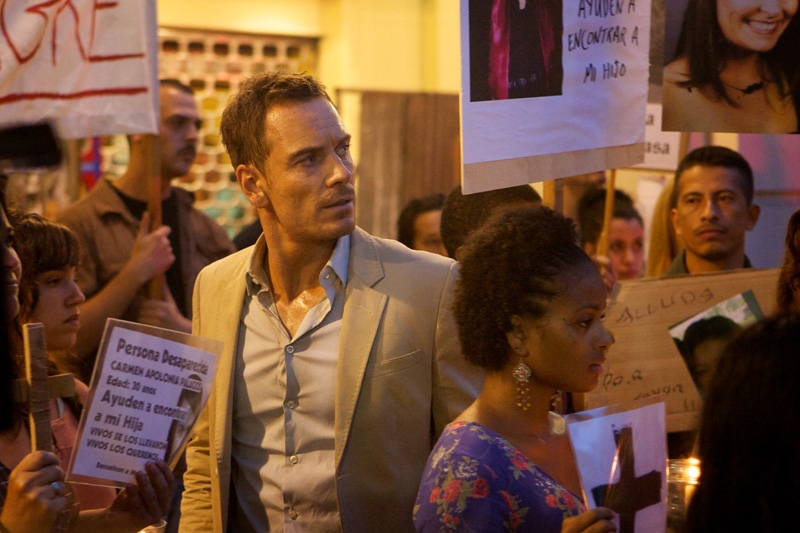
Ideas about God, love, and death are reflected upon throughout arts in various forms, through countless ways they can exist and coexist. The diamond dealer played by Bruno Ganz says God is “purloined” by the West from the Jews.
Regarding the connection between love and death, Reiner, Javier Bardem’s character, compares being in love with Malkina with being in love with “easeful death”. This connection between love and death becomes particularly vivid at the end of the movie when the Counselor’s actions lead to the death of his fiancée.
A man talking to the Counselor on the phone, the one responsible for her death, tells him about a poet named Machado, who became a great poet after his wife died, who he loved. He also states that Machado would give all his poems for another hour with his beloved. He asks the Counselor if he would trade places with his beloved, out of his love for her. Here, love and death coincide, and for a moment they cannot be easily distinguished from each other.
At the end of the film, a bartender says that he does not believe that death has no meaning. It is he who is without meaning since all the members of his family are dead. Soon after, the Counselor receives a CD, obviously containing a snuff pornographic film with his wife in it. This can be seen as an ultimate perversion of the idea of love, since the sexual act that takes place is a violation that ends with death.
2. Portrays civilizations’ decadence
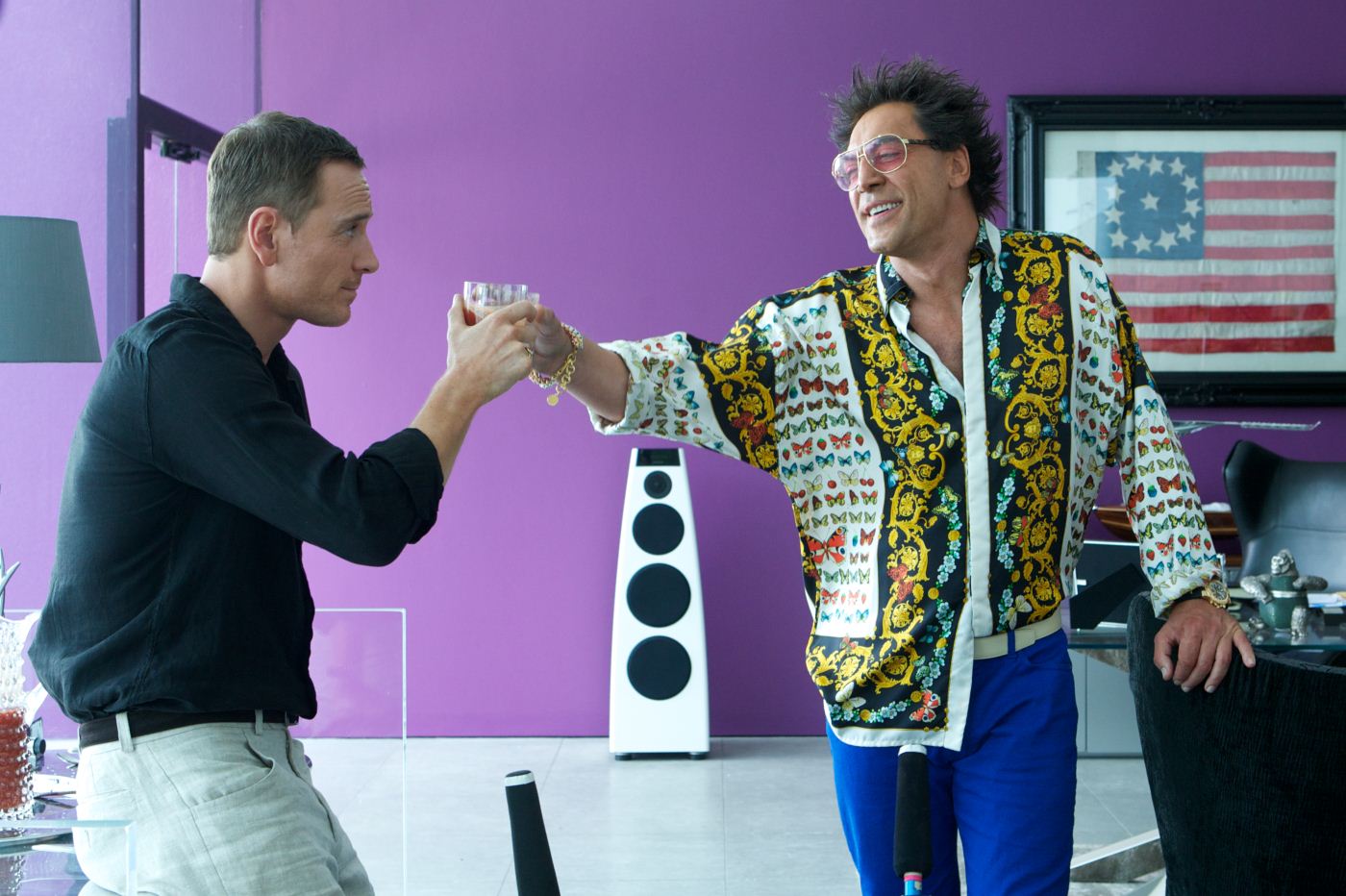
The diamond dealer in Amsterdam tells the Counselor his thoughts about culture, the term that can be understood in various ways, but in this context, it could signify the “civilization”. He says: “There is no culture, save for the Semitic culture. The last known culture before that was the Greek, and there will be no culture after that, nothing.” The Counselor replies that it is a bold claim, and from an American standpoint, it is.
The diamond dealer’s interpretation is distinctly European; it is a philosophy of culture and its decadence. He opposes the classical age and their remnants to the annihilation of culture in the West. Terry Eagleton, who wrote about culture, writes: “Culture can be a model of how to live, a form of self-fashioning or self-realization, the fruit of a coterie or the life-form of a whole people, a critique of the present or an image of the future.”
If we follow the diamond dealer’s arguments, we could say that obscenities and brutal violence, “the film’s excesses”, as one critic wrote in his review of the film, are not simply the excesses of a film, or McCarthy’s; they are a product of our own civilization. In his novel “Red and Black”, Stendhal said that a novel is like a mirror carried along a high road: “His mirror shews the mire, and you blame the mirror!”. In other words, the writer is accused of being immoral because in his work, the atrocities of a time are reflected.
Following Eagleton’s interpretation of culture, when a model of how to live comes to ruin, everything presented in the film becomes not only possible but a natural form of conduct. When a Mexican who is murdered with a steel wire while riding a motorbike explains how his diet consists of dog food and how he would “recommend it to anybody,” it is an obvious parody of the way of living in the contemporary world.
3. Costumes accompany characters’ personality traits
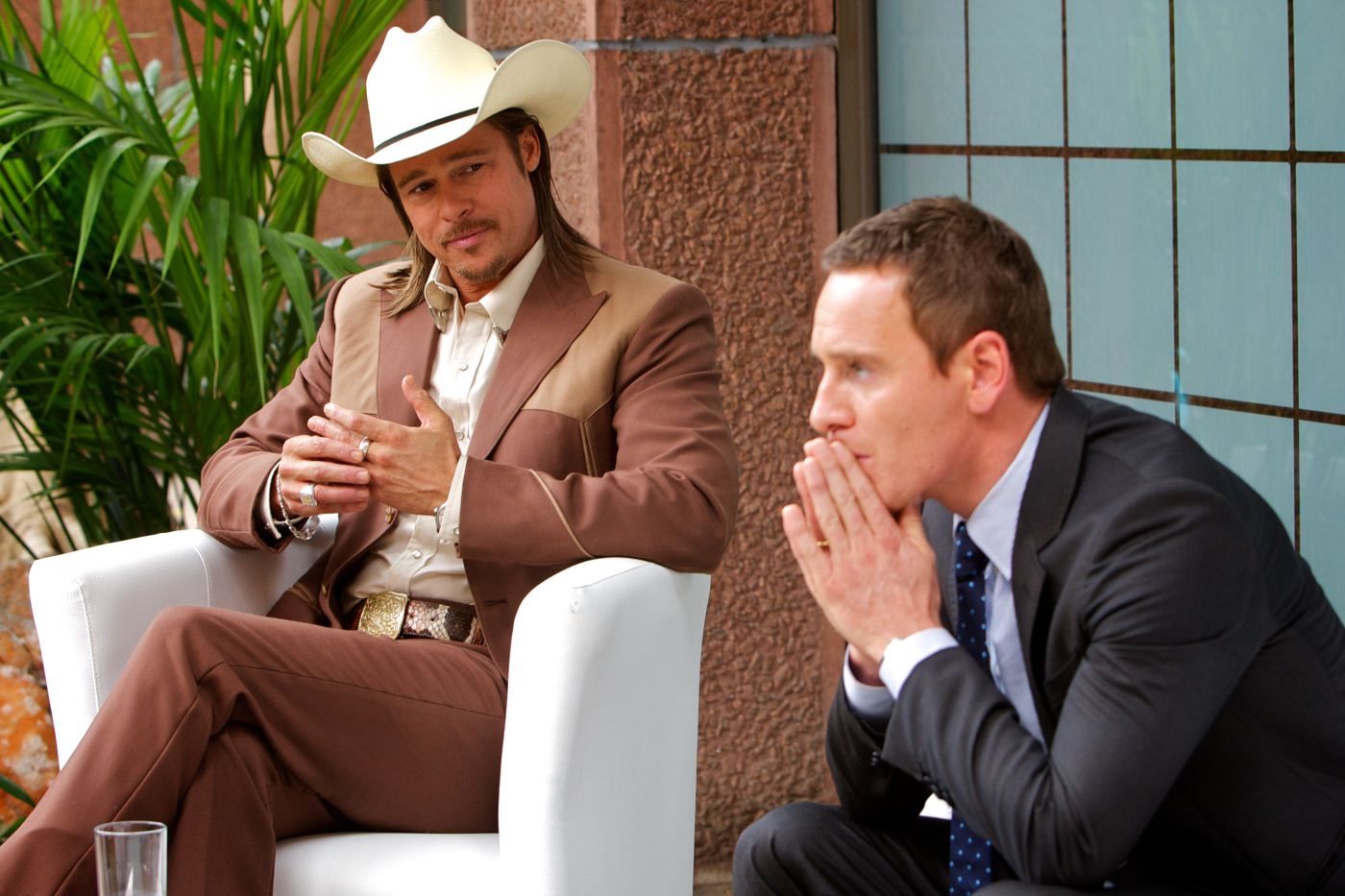
In a New York Times article in which the role of fashion in “The Counselor” is highlighted, Malkina’s character is explained through this perspective: “Every detail of Malkina’s turnout — the nails, the cheetah-spot tattoo that travels from her shoulder to her hip, the gold tooth, the second-skin costumes — suggests a predator as intent on the kill as the cheetahs she keeps as pets.”
Versace shirts are worn by club owner Reiner, and the sunglasses he wears point to the extravagance of his character as well as his outgoing, reckless, and somewhat vulgar personality. Westray, with his cowboy hat and outfit, seems to have a desire to highlight his individuality in contrast to his surroundings.
The Counselor wears fine-tailored Armani suits pointing to his image of a reserved professional who wants to be taken seriously, of a man up to the task he embarks upon. Designer Paula Thomas, who designed clothes for Cameron Diaz’s character, said: “She’s bold, edgy, modern. She’s about wanting to be seen, as opposed to blending into the background.”
While the Counselor wants to “blend” with his surroundings, Malkina wants to stand out and be seen as a woman who takes control of everything around her, and her style points to the need to be seen as someone radically different and more tenacious.
4. Moral dilemmas and their consequences
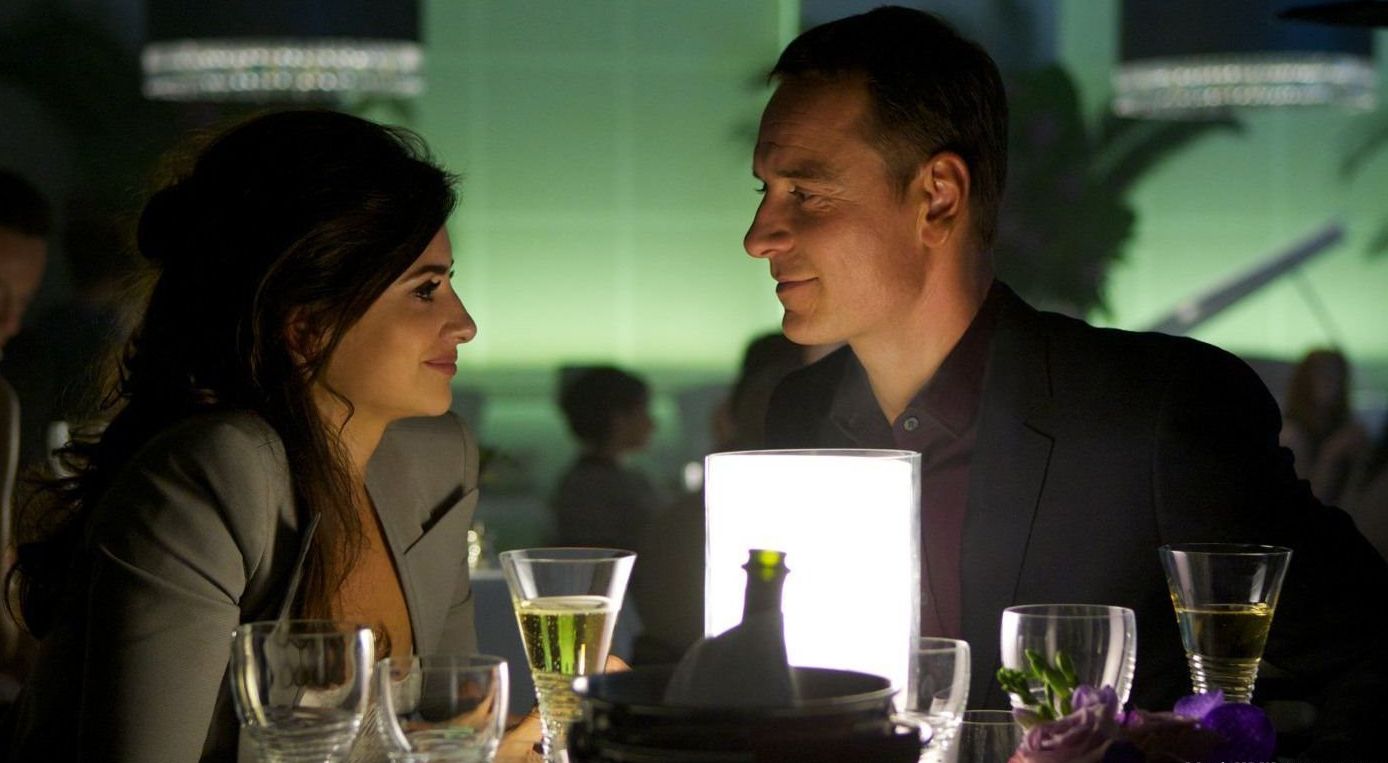
In the Counselor’s conversation with Reiner, the latter says the Counselor attracts women because “they can sniff out the moral dilemma. The paradox.” He also says: “If you pursue this road that you’ve embarked upon, you will eventually come to moral decisions that will completely take you by surprise.”
The moral dilemma in question is essentially the one whether he should go on with the drug deal. The road ahead for him is an enigma; he could never have imagined what could happen, yet he takes that road. The stakes are higher than he wishes to believe.
In McCarthy’s novel “Blood Meridian”, the judge, a demonic character that shares the qualities of both Chigurh from “No Country for Old Men” and Malkina in this movie, says the following about the nature of war: “Man are born for games. Nothing else.
Every child knows that play is nobler than work. He knows too that the merit of a game is not inherent in the game itself but rather in the value of that which is put at hazard.” In the “game” of war, life is put at hazard, but the same applies to the “game” the Counselor decides to play. It’s not only his own life that is at stake, but also the one of his fiancée.
The choice he makes, aside from entering the drug deal in the first place, is to call her to meet with him later. The end result is her violent death. In the world of McCarthy’s novels, or this film as well, no one is completely innocent since “when God made man the devil was at his elbow”, as a character from “Blood Meridian” says.
Laura, the Counselor’s fiancée, made a choice to marry him, and by that choice she is “stained” and eventually suffers a violent death. At the end of the movie, a man on the phone says to the Counselor: “And you want to choose, but there is no choosing there. There is only accepting. The choosing was done a long time ago.”